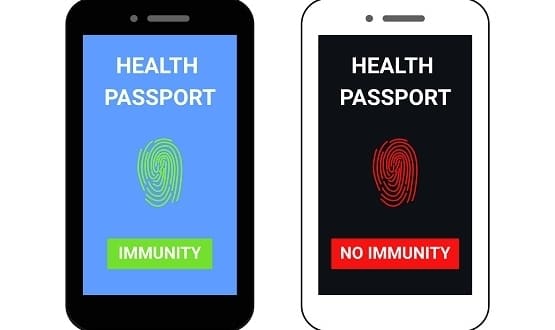Digital immunity passports part of government’s plans to ramp up testing

Digital immunity passports are to form part of the governments new plans to ramp up testing, a leaked memo has revealed.
The ambitious Operation Moonshot programme aims to carry out up to 10 million Covid-19 tests a day by early next year as part of a £100bn expansion of the testing programme, according to the BMJ.
Under the plans, digital immunity passports will be used to allow people who have tested negative for the virus to return to work, to travel and to take part in other activities.
Speaking after a government announcement that gatherings in England are to be restricted to six people as of 14 September, Prime Minister Boris Johnson said he wanted to eventually use testing to identify those who have tested negative to allow them to return to normal.
Digital immunity passports are a digital document detailing a person’s test results proving they are not considered a risk in spreading the virus, for example someone who has tested positive for Covid-19 antibodies and have therefore had the virus and are not thought to be likely to contract is again.
But, according to Privacy International, immunity passports are “dangerous” and risk excluding vulnerable groups and misuse of data, or mission creep.
The privacy charity said there is no scientific basis for digital immunity passports, adding: “The social risks of immunity passports are great: it serves as a route to discrimination and exclusion, particularly if the powers to view these passports falls on people’s employers, or the police”.
Evidence suggests police enforcing coronavirus rules are seven times more like to issue fines to black, Asian and minority ethnic people than white people.
But according to a post on the government’s Centre for Data Ethics and Innovation blog digital immunity passports could prove “valuable” in settings where there’s a high risk of transmission, such as sports venues and travel.
It acknowledges a risk to users privacy but adds there are “ways to mitigate these risks”.
Immunity certification should “guaranteeing that only the essential elements of a person’s identity are included”, the blog states, adding “there would also need to be clear guidelines about who should have access to the data stored on the certificate, so as to prevent undesirable data sharing between organisations”.
Digital immunity passports also heavily rely on reliable, large-scale antibody testing.
In April, the World Health Organisation warned against the use of passport schemes as “there is currently no evidence that people who have recovered from Covid-19 and have antibodies are protected from a second infection”.
Under Operation Moonshot the government plans to roll-out testing in workplaces, entertainment venues, football stadiums and at GP surgeries, pharmacies, schools, and other local sites to improve access, according to the BMJ.
But the costly plan was criticised as devoid of any contribution from scientists, clinicians, and public health and testing and screening experts,” and “disregarding the enormous problems with the existing testing and tracing programmes”.
Currently about 150,000 and 200,000 tests are completed each day, but testing capacity is reported at around 350,000. Reports have also surfaced of testing centres running out of tests.
The Department of Health and Social Care was contacted for comment.




